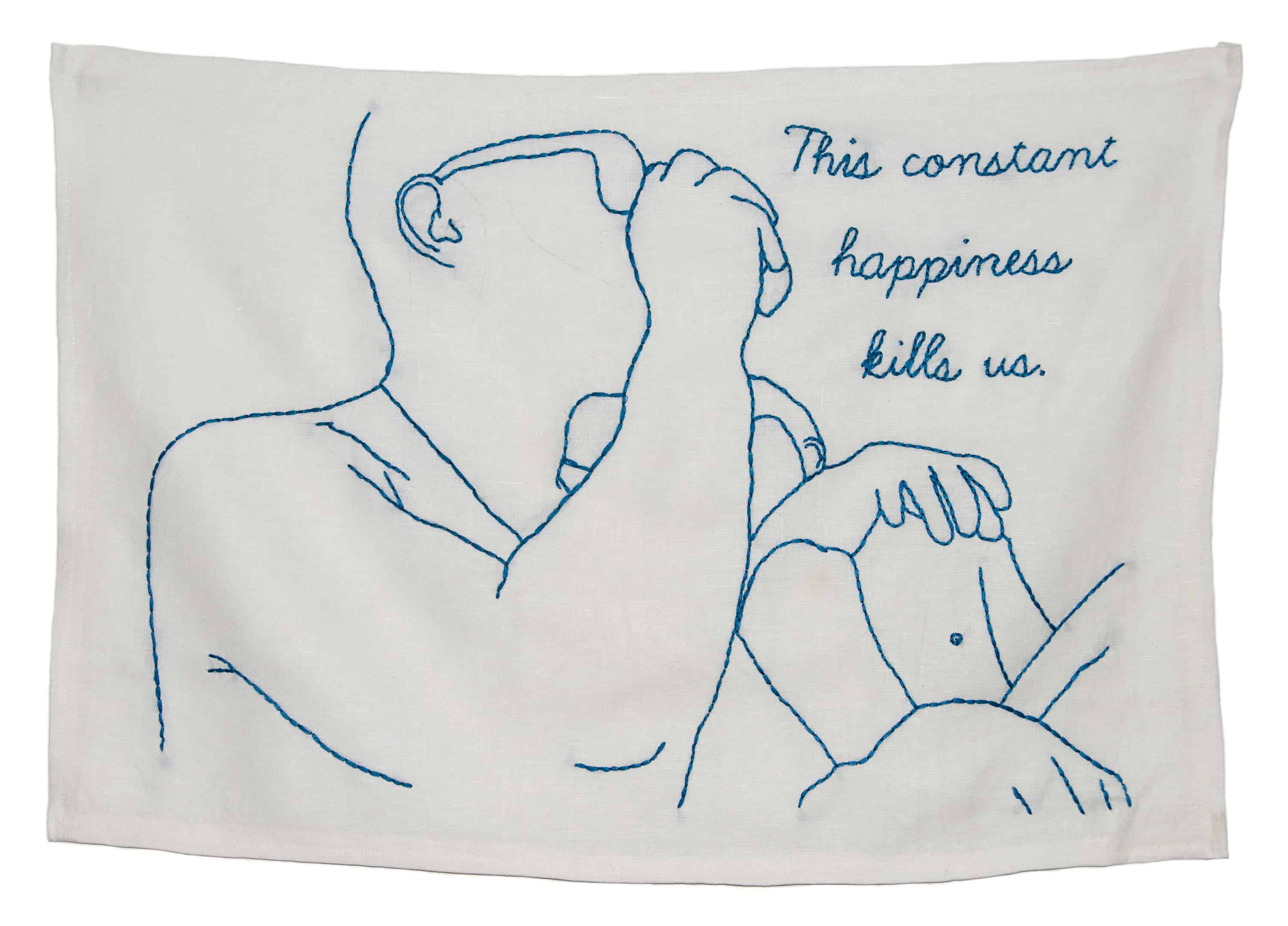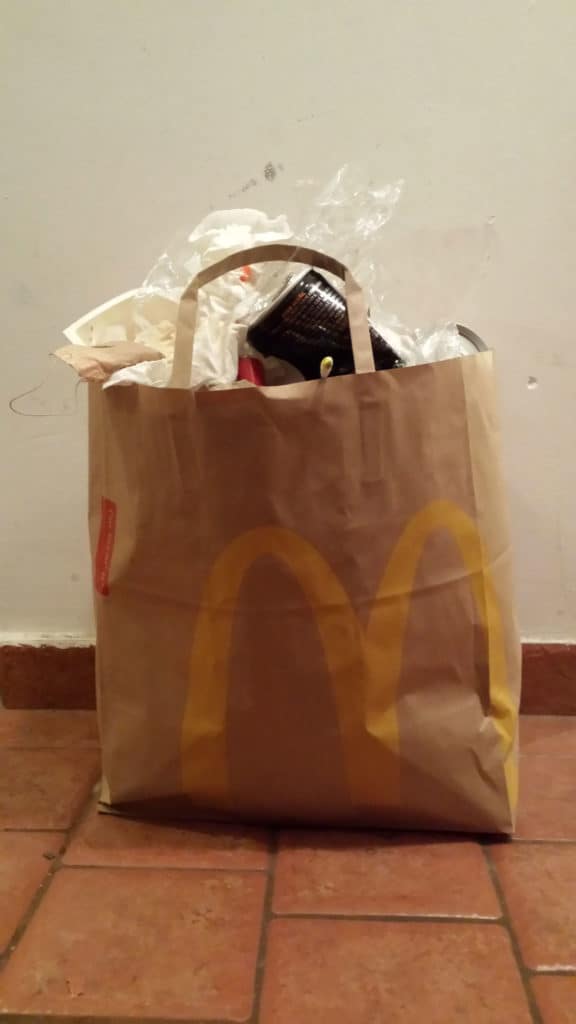More gym, less alcohol, healthy gluten-free food (even when we are not allergic to wheat and we have no celiac disease) – New Year means new self. We buy new clothes to create a new version of self, in a new style for a new profile picture on Facebook or LinkedIn. New Year, new me.

Paweł Żukowski, This Constant Happiness Kills Us, tapestry
We can also take advantage of one of the hundreds of apps and for example enlarge our eyes and lips, or tone our thighs. We can also do this in South Korean style: go to one of the 500 plastic surgery clinics in the capital and after smoothing facial features or changing the shape of the nose we can gain the dream job – this is the most important part of South Korean CV. After all, education in the time, when everyone goes to college is nothing outstanding. A book can be just a prop. You can take the photo of your legs on the bed next to the open book and published it on Instagram… You will be looking like a wise man. Nobody cares if you really read it or not…
But what about what’s not published on Facebook, because it doesn’t fit the vision of the perfect avatar in the network? What about real life, and weekly shopping at Lidl and the necessity to choose discounted goods? What about a sense of being on the sidelines, recurrent depression, no insurance, or vision of a decent retirement? These are nowhere to be found, because they don’t fit the expectations of perfection or the vision of a lifestyle that is shown in the media. So why disturb our inner peace? Better not to see or know. Ignoring and selectivity become a new comfort, but also social segregation.

Paweł Żukowski, Trash of the Day, photography.
Unhealthy pursuit of perfection is addressed by such cyber trends as: “culture of losing”, “sad girls”, “sad boys”, “emo” and many more… Next subcultures show the needs and disagreements growing among people, but to a large extent, they also turn into a pose and self-creation.
At the end of 2018, in Warsaw I met an artist – Paweł Żukowski. He is a graduate of Photography at the University of Arts in Poznań, but also studied at the Warsaw School of Economics. Two weeks a month he works for one of the most recognisable lifestyle and fashion magazines in Poland, and for the remaining two weeks he looks for his own path and he creates works. He showed me his works, which led to a conversation about the vision of the world which is created in magazines.

My attention was drawn to the series: Trash of the Day. It consists of photos of garbage. His pictures show the remains of what has not been consumed – the remains of food, withered flowers, empty bottles, used packaging. These are all useless things, no longer suitable for anything – at least, according to their owner… Paweł Żukowski tells me that “waste is fascinating […] Trash gives me the materials.” The materials he uses in his works are often found in the surrounding streets. He collects things which were left on the street during removals, renovations, or were simply thrown away and are no longer needed – garbage. Sometimes, Żukowski’s neighbours bring him boards, shirts or coloured paper. They become materials for further work. I wonder about his fascination, his take on the subject of arte povera. Paweł states that for him it is a rebound of the artificiality of the world, a consumer race for everything which is beautiful, new and attractive. We create an artificial, perfect, happy world, and a perfect self. We retouch and throw away what is not comfortable and doesn’t adhere to this vision: Perfect me, and perfect you.”

Paweł Żukowski, Trash of the Day, photography
… But it is not like that” – Paweł says. “Ultimately, in real life, we find out that we can be disposed of in the context of a move to a new office – suddenly our desk is no longer on the new floor plan” … We can only take our plants from the window sill, which were also not included in the vision of the new ideal corporate world.
If everything is so perfect, where does depression, lack of self-confidence, drugs or pills come from?
…And what do you have in your trash can?
Paweł Żukowski, visual artist born in 1979. Lives and works in Warsaw. After finishing his master’s degree at the Warsaw School of Economics, he quit his career in one of biggest media corporations in Poland and moved to Poznań to complete his studies in photography at the University of Arts. He took part in a number of group exhibitions in Poland and abroad, and had a few solo shows. His works are in various private collections (because they were nice and cheap).







